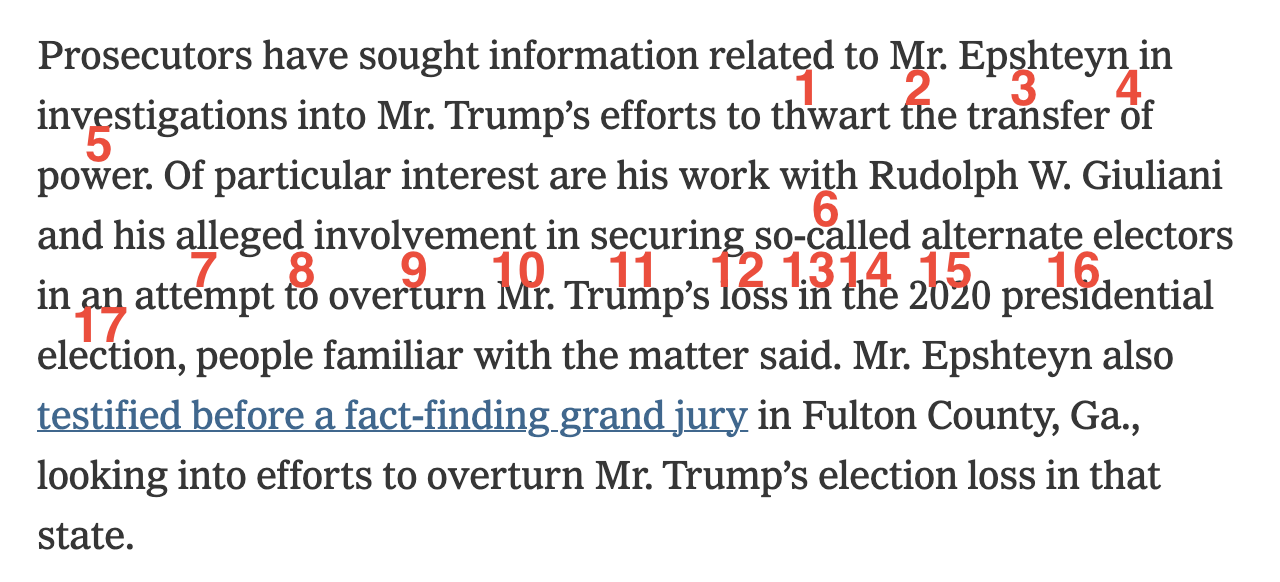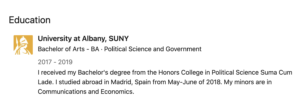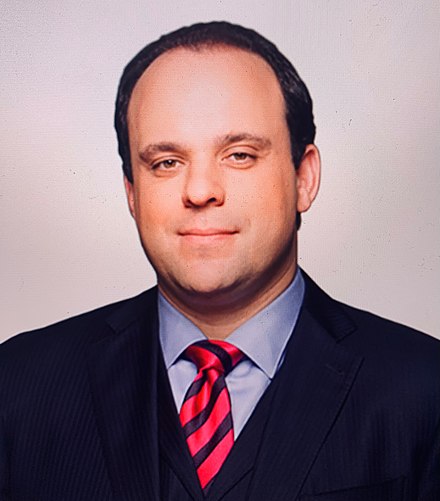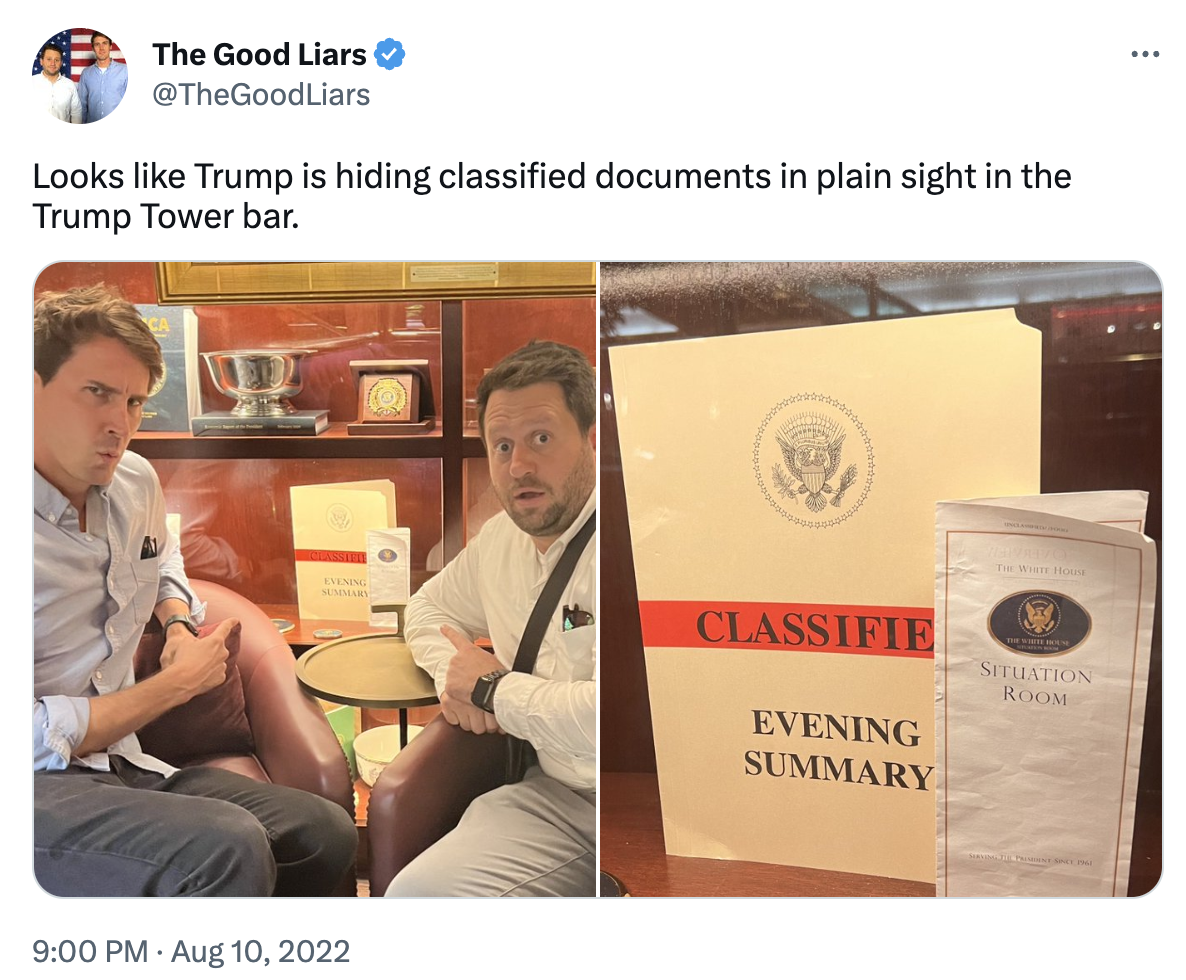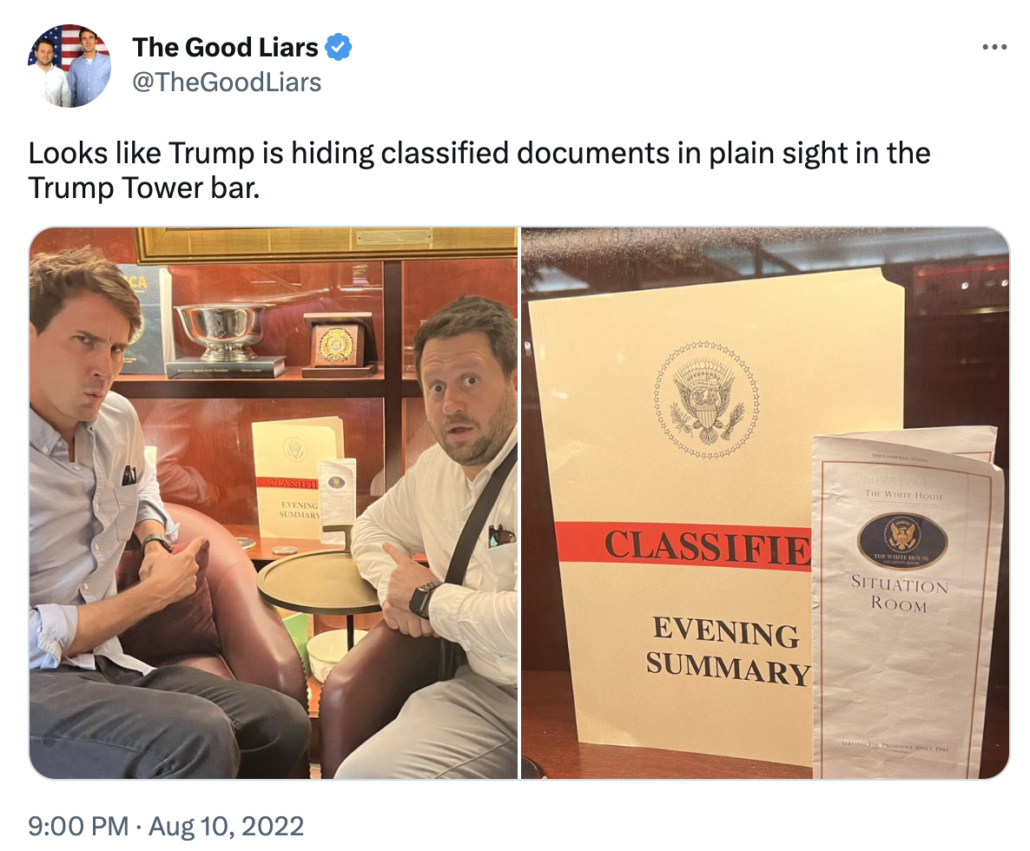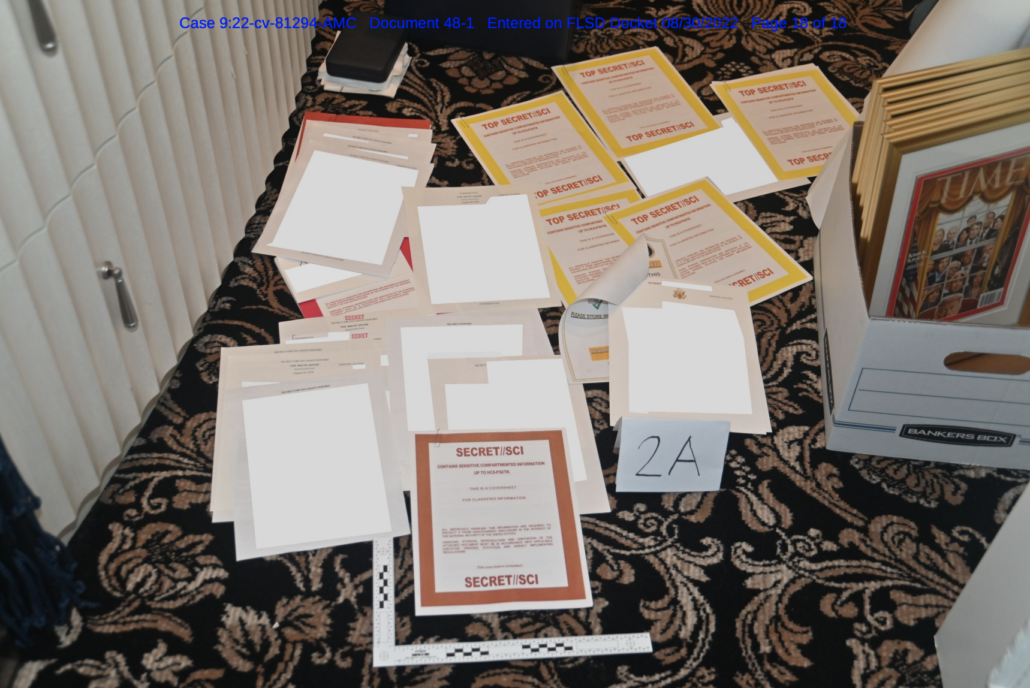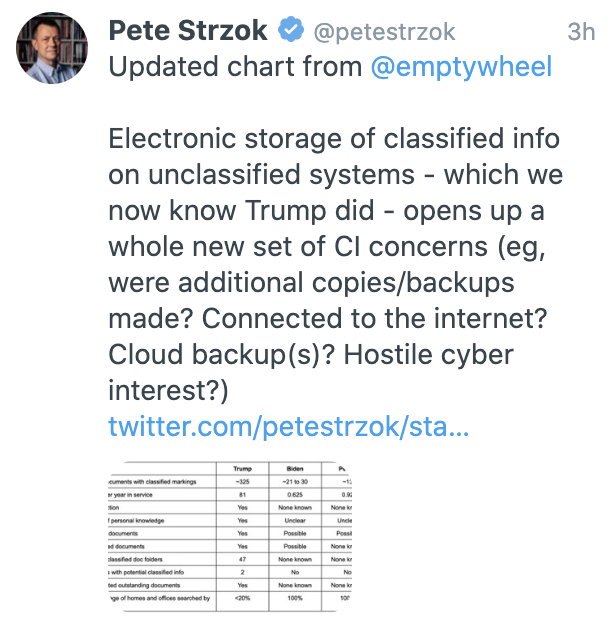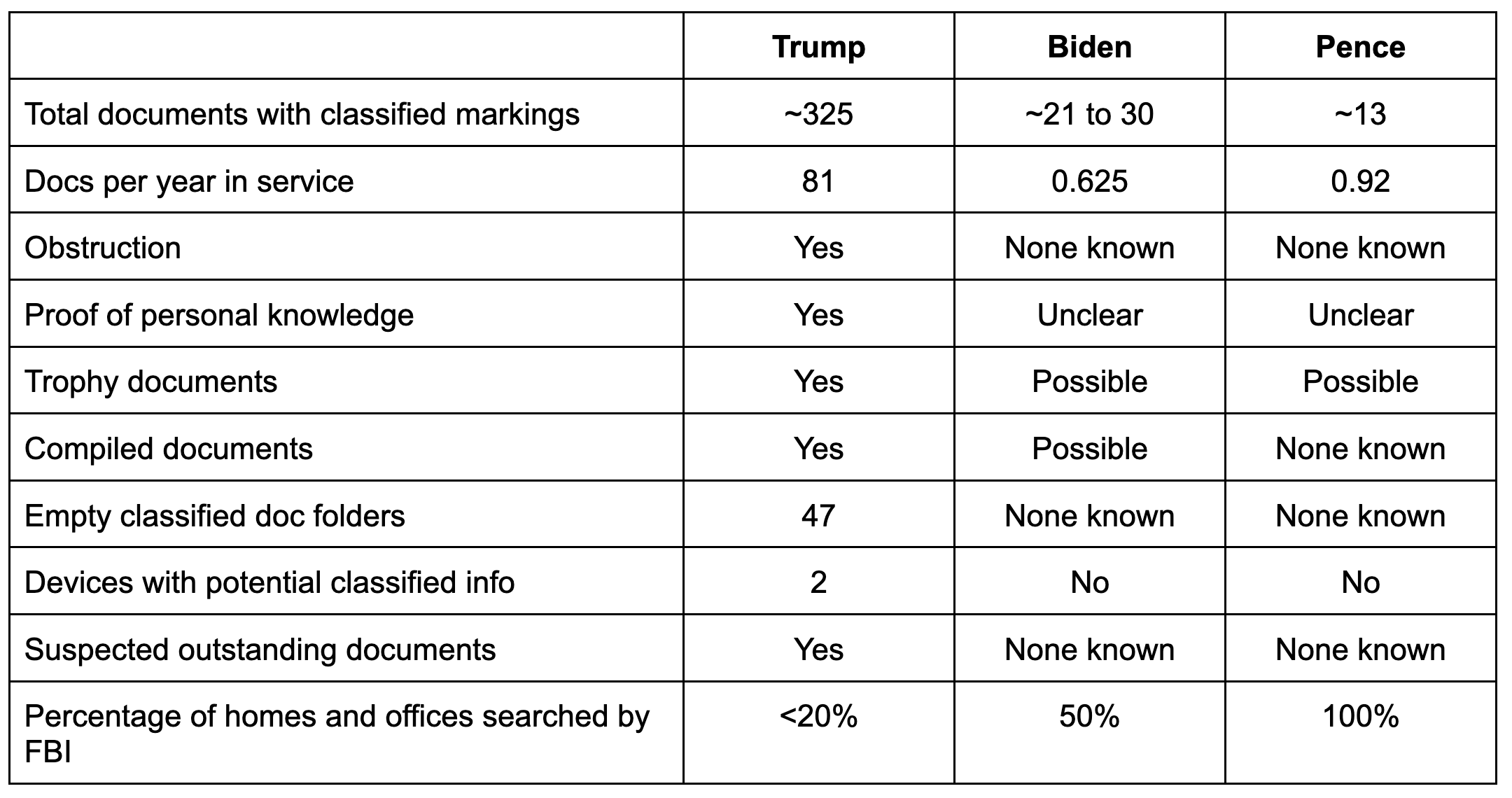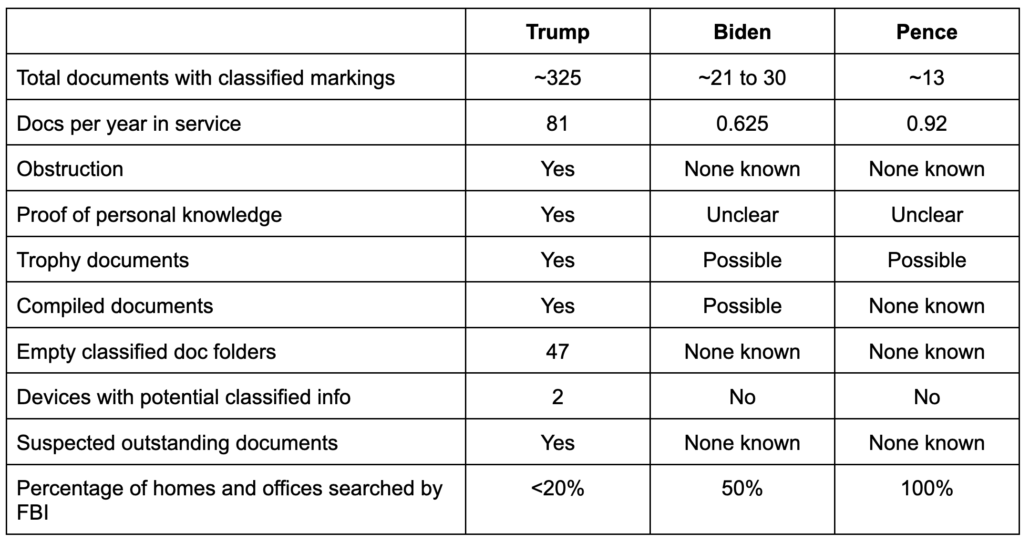The New Investigation into Bannon and Boris Buried Under Bannon’s Bluster
For at least six years — from Rick Gates sharing stuff with Maggie as a way to share it with Roger Stone, to Stefan Passantino sharing Cassidy Hutchinson’s damaging testimony because “Maggie’s friendly to us. We’ll be fine” — people in Trump’s camp explicitly state they go to Maggie Haberman because she’s useful to their goals. The results are obvious, such as the time when Maggie buried the news that Trump had spoken to Vladimir Putin about adoptions immediately before crafting a bullshit cover story for the June 9 meeting that claimed it was all about adoptions; Maggie buried the story by repeating Trump’s threats to fire Jeff Sessions first.
That’s why it’s useful to look at two damaging details Maggie buried in what purports to be a profile of Boris Epshteyn, the non-Breaking News parts of which I covered here and other parts that WaPo covered in November.
First, NYT buried the news that SDNY has opened an investigation into the crypto currency scam Epshteyn and Steve Bannon grifted loyal Trump supporters with beneath not one, not two, but three flashy quotes about Epshteyn from Bannon himself, followed by 22 paragraphs, many focused on how Boris charged campaigns for keeping them on Trump’s good side, then one paragraph that included 17 words of tortured Enhanced Euphemism Techniques in an 83 word paragraph, only then to reveal that Bannon is under investigation for the crypto currency scheme, too.
A cryptocurrency with which [Epshteyn] is involved has drawn scrutiny from federal prosecutors.
[snip]
“Boris is a pair of heavy hands — he’s not Louis Brandeis,” said Stephen K. Bannon, a close ally of Mr. Epshteyn and former adviser to Mr. Trump, referring to the renowned Supreme Court justice. But Mr. Trump, he said, “doesn’t need Louis Brandeis.”
“You need to be a killer, and he’s a killer,” Mr. Bannon added.
But Mr. Epshteyn’s attacking style grates on other people in Mr. Trump’s circle, and he has encouraged ideas and civil lawsuits that have frustrated some of Mr. Trump’s lawyers, like suits against the journalist Bob Woodward and the Pulitzer Prize committee. His detractors see him as more of a political operative with a law license than as a provider of valuable legal advice.
“As soon as anybody starts making anything happen for Trump overall, the knives come out,” Mr. Bannon said. He described Mr. Epshteyn as “a wartime consigliere.”
[21 paragraphs, many focused on Epshteyn’s dodgy consulting gig]
[This paragraph, in which 17 tortured words out of 83 are Enhanced Euphemism Techniques:
More recently, a pro-Trump cryptocurrency that Mr. Epshteyn and Mr. Bannon are involved with managing is facing an inquiry from federal prosecutors in the Southern District of New York, according to a person familiar with the matter.
Breaking: A key source for this story, Steve Bannon, is under investigation for the shameless grift of printing pro-Trump money, then bilking Trump supporters every time they bought it.
Compare how ABC reported the same story when they covered it a few hours later:
A cryptocurrency linked to former Trump White House strategist Steve Bannon and Trump adviser Boris Epshteyn has caught the attention of federal prosecutors in New York, who have started looking into it, sources familiar with the matter told ABC News.
News of federal prosecutors’ interest in the Bannon and Epshteyn-fronted cryptocurrency comes on the heels of an ABC News investigation into the cryptocurrency, which looked at allegations of internal chaos and mismanagement by the two high-profile Trump associates over the past year, including accusations that they’ve failed in their commitment to continue to donate portions of the coin’s proceeds to charities.
The New York Times was the first to report the news of the inquiry from federal prosecutors.
MORE: Internal chaos plagues Bannon-fronted $FJB cryptocurrency, critics say
The cryptocurrency — dubbed $FJB from the shorthand version of the vulgar MAGA expression “F— Joe Biden” and now officially said to stand for Freedom Jobs and Business — has lost 95% of its value amid internal turmoil, at least in part due to an industry-wide downturn.Critics say $FJB represents the latest in a string of ill-fated efforts to leverage MAGA support for financial returns — particularly on the part of Bannon, who in September pleaded not guilty to unrelated charges that he defrauded donors with the promise of building a wall on the U.S.-Mexico border.
Acquired by Bannon and Epshteyn from original lead creator Grant Tragni and two other co-founders in late 2021, $FJB was promoted as a rejection of President Joe Biden and an alternative financial institution for conservatives by the two MAGA influencers — who also emphasized that part of the currency’s 8% transaction fee would go to charities including the Wounded Warriors Project, Tunnels To Towers, Semper Fi and Patriot Freedom Project.
But according to a spokesperson for the Wounded Warriors Project, as of January this year, no donations had been made by $FJB to the organization since Bannon and Epshteyn took over in December 2021. Wounded Warriors told ABC News that they had only received the one donation from $FJB in November 2021 — prior to Bannon and Epshteyn’s involvement.
NYT, apparently, thought it more important to string out a bunch of quotes from a suspected serial fraudster — “heavy hands — he’s not Louis Brandeis,” … “You need to be a killer, and he’s a killer,” … “a wartime consigliere” — rather than ask the serial fraudster if he had knowingly defrauded a bunch of MAGAts or at least describe how he exploited Trump’s loyal followers. (Note, this scam is also covered in Denver Riggelman’s The Breach, which is better than I thought it’d be.)
The other thing buried twelve paragraphs into a story covering stuff many people have already covered is that Ephsteyn tried to retroactively claim he was providing legal advice after the search of Mar-a-Lago.
After the search last summer of Mar-a-Lago by F.B.I. agents looking for classified documents still in Mr. Trump’s possession, Mr. Epshteyn retroactively changed his agreement with the political action committee. The agreement, which had been primarily for communications strategy, was updated to include legal work, and to say it covered legal work since the spring of last year, a campaign official said. His monthly retainer doubled to $30,000.
But he dropped a separate effort to have Mr. Trump sign a letter retroactively designating him as a lawyer for Mr. Trump personally, dating to March of last year, soon after Mr. Trump’s post-presidency handling of classified documents became an issue. The letter specifically stated that their communications would be covered by attorney-client privilege, multiple people familiar with the request said.
Now, credit where credit is due. As I noted when I described Maggie’s recent solo foray into campaign finance journalism, after a slew of stories in which Maggie called Epshteyn Trump’s “in-house counsel,” once she looked at the FEC documents, she described that Boris had billed all this as strategic consulting.
NYT has, in various stories including Maggie in the byline, described Epshteyn’s role in the stolen documents case as “an in-house counsel who helps coordinate Mr. Trump’s legal efforts,” “in-house counsel for the former president who has become one of his most trusted advisers,” and “who has played a central role in coordinating lawyers on several of the investigations involving Mr. Trump.” Another even describes that Epshteyn “act[ed] as [a] lawyer [] for the Trump campaign.” The other day, Maggie described his role instead as “broader strategic consulting.”
In this story, the story that reveals that after the search of MAL Epshteyn attempted to retroactively declare that he had been providing legal advice all along, Maggie calls him the, “self-described in-house counsel.”
I guess we know who was describing him as “in-house counsel” for all those stories stating as fact that he was the in-house counsel?
Epshteyn’s attempted retroactive claim that he had been providing legal services is not a minor detail.
Effectively what Epshteyn did was, after playing a key role in Trump’s coup attempt followed by a year of grifting off his access to Trump, he swooped back into Trump’s orbit when it became public that Trump had been fighting to withhold documents from the government; who knows what more details Ephsteyn had about all the highly sensitive documents stored in a leatherbound box in his office when he swooped in. And over the course of the next five months, Ephsteyn brought in a group of lawyers who are highly inappropriate to advise on a classified documents case, including Evan Corcoran, who treated a potential Espionage Act case as an 18 USC 1924 case, Chris Kise, fresh off his work for the Maduro regime, and, for a bit part playing the fall gal, former OAN host Christina Bobb. Some of these people are accomplished lawyers, but they’re not remotely appropriate to this investigation.
It’s unclear whether Epshteyn assembled such an inappropriate team because he wants Trump to go down, with all the chaos that will cause, because he’s stupid and wildly unsuited to this role, or because Trump was desperate. But after ensuring there was no one who could be called an adult in the terms of Espionage Act investigations left in the room, Epshteyn then reportedly masterminded a shell game on June 3 in which Trump boarded his jet to Bedminster at the moment that Corcoran handed over a packet of documents that Bobb claimed, with no way of knowing, constituted everything Trump had left.
“Wartime consiglieres,” as Bannon called his brother in cryptocurrency scam, don’t orchestrate such transparently stupid schemes.
And then after DOJ called Trump’s bluff with a search of Mar-a-Lago on August 8, according to this story, Epshteyn attempted to make all the conversations he had in the run-up to that search privileged, retroactively. Epshteyn appears not to have considered this legal advice until the moment it became clear his shell game had failed.
And given that some of Maggie’s best sources — including some of the sources who’ve long had the knives out for Epshteyn — have chatted with prosecutors since the search, prosecutors likely know that Epshteyn only belatedly decided he had been playing a lawyer all along. Maybe they even found it out before they seized Ephsteyn’s phone in early September under a January 6 warrant. Or maybe some of the recent activity in the stolen documents case, including the effort to get crime-fraud testimony from Corcoran, aims to shore up a warrant for stolen documents-related Epshteyn phone content that the FBI already has in its possession.
Indeed, this new detail explains something else in the story, something that NYT and others have already covered. Among the questions that Bobb and Corcoran and others have gotten from prosecutors pertains to Epshteyn’s attempt to set up a common-interest agreement.
Prosecutors investigating Mr. Trump’s handling of classified material have looked at whether Mr. Epshteyn improperly sought a common-interest agreement among witnesses as a shield against the investigation, the people familiar with the matter said.
Til now, this detail has always been reported without explanation of why it would be wrong — why it would deviate from normal white collar practice. The line of questioning didn’t make sense to me. It makes far more sense, however, if Epshteyn did so after his shell game blew up on him. It makes more sense if Epshteyn was trying to shield his own behavior, just as retroactively declaring his advice legal advice would do.
The question is why. Why Epshteyn advised Trump to take such a catastrophically stupid approach to stolen classified documents. By embedding this breaking news in a profile about the way Epshteyn monetized access to Trump, NYT seems to suggest that’s the motive (and I’ve heard similar descriptions from others): Epshteyn was just giving Trump what he wanted when no one else would as a way to make sure his other grift could continue.
That’s not the only possible motive, though: there are other more obvious reasons someone who failed to get clearance, even in Trump’s White House, might want to help Trump hoard highly classified documents (NYT reports that “the issue has been resolved”).
The question of why Epshteyn did all this has likely become closely intertwined with prosecutors’ attempts to assess why Trump withheld the documents in the first place, as well as attempts to understand why two separate searches found 47 empty classified document folders.
Tim Parlatore — another lawyer who is woefully ill-suited for a stolen documents case — is quoted by the NYT stating that the rest of the lawyers Epshteyn has assembled will be good so long as Epshteyn, himself, doesn’t become a target, as if the seizure of his phone is not some kind of tip off.
“Boris has access to information and a network that is useful to us,” said one of the team’s lawyers, Timothy Parlatore, whom Mr. Epshteyn hired. “It’s good to have someone who’s a lawyer who is also inside the palace gates.”
Mr. Parlatore suggested that he was not worried that Mr. Epshteyn, like a substantial number of other Trump lawyers, had become at least tangentially embroiled in some of the same investigations on which he was helping to defend Mr. Trump.
“Absent any solid indication that Boris is a target here, I don’t think it affects us,” Mr. Parlatore said.
I don’t even know what to make of Parlatore’s quote explaining that Boris’ network “is useful to us.” To do what? Isn’t the goal to keep Trump out of prison?
But I do know that none of these people seem to be sufficiently worried about 18 USC 793(g), the built-in conspiracy clause in the Espionage Act. Even if Epshteyn’s motives are no more ignoble than attempting to monetize his access to Trump — and, again, his motives are likely as much a focus as Trump’s at this point — that doesn’t exempt him from exposure to conspiracy charges himself if he agreed to help Trump hoard the classified documents. Indeed, adding Epshteyn as a co-conspirator might have several advantages for prosecutors.
Epshteyn is, as this profile and others have laid out, someone monetizing access to Trump. The more salient detail, for the investigation, is why Epshteyn only retroactively tried to protect his own involvement in the alleged attempt to withhold classified documents.

